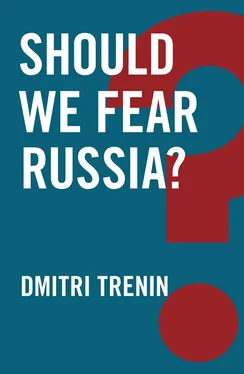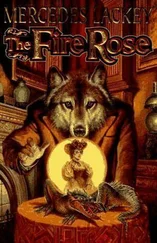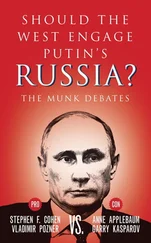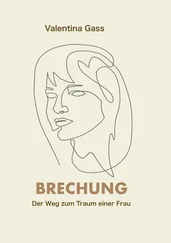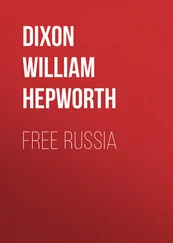So far, the Europeans have managed to stick together on Russia sanctions and to form a common front with the United States. It has been one of the major foreign policy accomplishments of the Obama administration that EU and US sanctions are essentially identical and offer no daylight to the Kremlin. Given the very light US exposure – in contrast to that of Europe – to Russian trade, US sanctions are expected to stay indefinitely, as there is no domestic constituency for removing them. If, however, the price of the EU keeping its sanctions on Russia becomes too great at some point, this would open a gap between Europeans and Americans that Moscow would welcome.
It is not only material issues that present the Europeans with challenges related to Russia. The Kremlin has adopted an ideology of conservatism or traditionalism and designated liberalism as an opponent. This, of course, does not prevent Moscow from being opportunistic when circumstances allow or demand it. Russian conservatism on such issues as the value of national sovereignty, the role of religion in society, or the importance and nature of the family, however, finds an echo in those quarters across Europe which are disillusioned with globalization and the European project. A more successful Russia and smarter Russian policy could in the future capitalize more in these areas.
Until the Ukraine crisis, Russia was pushing for some form of Euro-Russian confederacy, under the rubric of a “Greater Europe,” from Lisbon to Vladivostok. This would have been based on a marriage between Russian resources and European industry, cemented by asset swaps, cross-investments and technology transfers, and various sorts of exchanges among people. Such a Europe would certainly have been whole, and might even – depending on the level of EU–Russian policy coordination – have played a global role, but at the price of distancing itself from the United States. Many Europeans with strong Atlanticist convictions were wary of the idea, which would have not so much tied Russia to the EU as the other way around. When Vladimir Putin laid out his plans to the German political and business communities in 2010, he got a cool reception from Angela Merkel.
Meanwhile, the challenge of Russia as “Greater Europe’s” potentially dominant power has been succeeded by a different kind of challenge. Russia’s alienation from Europe has coincided with its turn to the east, all the way to the Pacific. In 2012, the Customs Union of Belarus, Kazakhstan and Russia was upgraded to become a Eurasian Economic Union. The “Greater Europe” concept was thus transformed into a binary construct composed of the EU and the EEU. In 2015, Moscow agreed to “harmonize” the EEU with Beijing’s “One Belt, One Road” initiative. The result could be a “Greater Eurasia” from Shanghai to St Petersburg. Long the east of the West, Russia could turn into the west of the East.
The ultimate challenge for the Europeans, of course, would be a Russia that breaks down and threatens to disintegrate. Should this happen – and this cannot be completely ruled out – it would create a major source of instability on Europe’s eastern fringes. The much referred to “collapse” of the Soviet Union was in fact a more or less orderly dismantlement of its huge edifice. Of all exits from an empire, Russia’s in the 1990s was one of the least bloody and most cheerful: Moscow itself was leading the process. There is no certainty, however, that a new “geopolitical catastrophe,” should it occur, would be as mild. With all these issues at the back of one’s mind, how has the West dealt recently with the Russian challenge?
3
Bringing Russia into Line
For a number of years, the Russian challenge, in gestation, was largely ignored. Russia was expected by some to bite the bullet and adapt or adjust to the new world-order realities. Others expected it to transform itself – e.g., from Saul to Paul. In any event, Russia was perceived as too weak to matter much; as sufficiently integrated into the global economy, on the one hand, and highly vulnerable because of its dependence on the oil price, on the other; and too corrupt to take on the West, for fear of having their hidden riches or dubious transactions exposed and risking court proceedings and even arrests. Essentially, this condition was expected to last a very long while.
The West as a whole did not have a Russia strategy: Russia simply was not an issue big enough to warrant that. The European Union, which on account of its geographical proximity had to pay more attention to Russia than the United States, became progressively disillusioned with the prospect of Russia’s “Europeanization.” The EU, however, does not operate as a strategic unit at all. As mentioned, the operators of the Eastern Partnership project grossly misjudged the stakes involved in Ukraine. When the Ukraine crisis broke out, the EU essentially withdrew to the background.
The United States has learned to look down on Russia, which was neither an issue nor a big enough partner. In Ukraine, the US, which had remained in the background during the Maidan stand-off, had to step forward when the Europeans proved unable to manage the crisis they had helped create. Washington soon forged a new NATO-wide approach to Russia which combined political isolation, economic pressure and information warfare, plus strengthening NATO and support for Ukraine itself. The policy’s stated objective was to make the Kremlin back off on Ukraine and step back in line. Europe basically went along with it.
Political isolation
The Ukraine crisis first resulted in largely symbolic measures. Russia was de facto expelled from the G8, which reverted to its more homogeneous G7 format. Cooperation in a number of other fora, from the NATO–Russia Council to the Parliamentary Assembly of the Council of Europe, was restricted or frozen. Top-level meetings and high-level contacts were reduced to the bare minimum. The aim was to demonstrate the West’s strong disapproval of Moscow’s policies and to send the message that there will not be business as usual until Moscow changes its behavior.
The result, after more than two years, has been the sealing of the chasm between the West and Russia. The relationship has taken a new, clearly adversarial quality. Mutual adversity is now the new normal. Political isolation, however, is little more than a phrase. There is nothing like an iron curtain physically separating Russia from the West, the way it was with the Soviet Union. Top-level visits became rare, but since the start of the Ukraine crisis President Putin has been to Austria, Australia, France, Hungary, Italy, Turkey and the United States, sometimes for multilateral summits. He has also toured key non-Western countries – Argentina, Brazil, China, India, Iran, and others – and received leaders of dozens of countries in Russia.
Other forms of communication were not broken off. Leaders’ phone calls, particularly between Putin and Obama, and between Putin and Merkel, have become, if anything, more frequent. In 2015 alone, the US secretary of state and the Russian foreign minister met about twenty times. The Normandy format brought together the Russian president and the leaders of Germany and France, as well as Ukraine, to discuss the Ukraine crisis. Despite his supposed “isolation,” Vladimir Putin held a number of informal but substantive meetings with Barack Obama.
True, there is no more warmth in these contacts, but they focus on issues that cannot be resolved without Russia – Ukraine, Iran and other non-proliferation concerns, and Syria. Russia, of course, remains a very active permanent member of the UN Security Council. It is also a member of the G20, and attempts to suspend it from the group were immediately rebuffed by China and other non-Western states. Against the background of deteriorating relations with the US and the EU, Russia’s ties with non-Western countries – including in such clubs as BRICS and the Shanghai Cooperation Organization (SCO), whose back-to-back summits Putin hosted in 2015 – have grown, even though they do not replace or compensate for the broken ties with the West. Russia, no longer an aspiring candidate for membership in an expanded West, is now positioning itself as part of the global non-West.
Читать дальше
